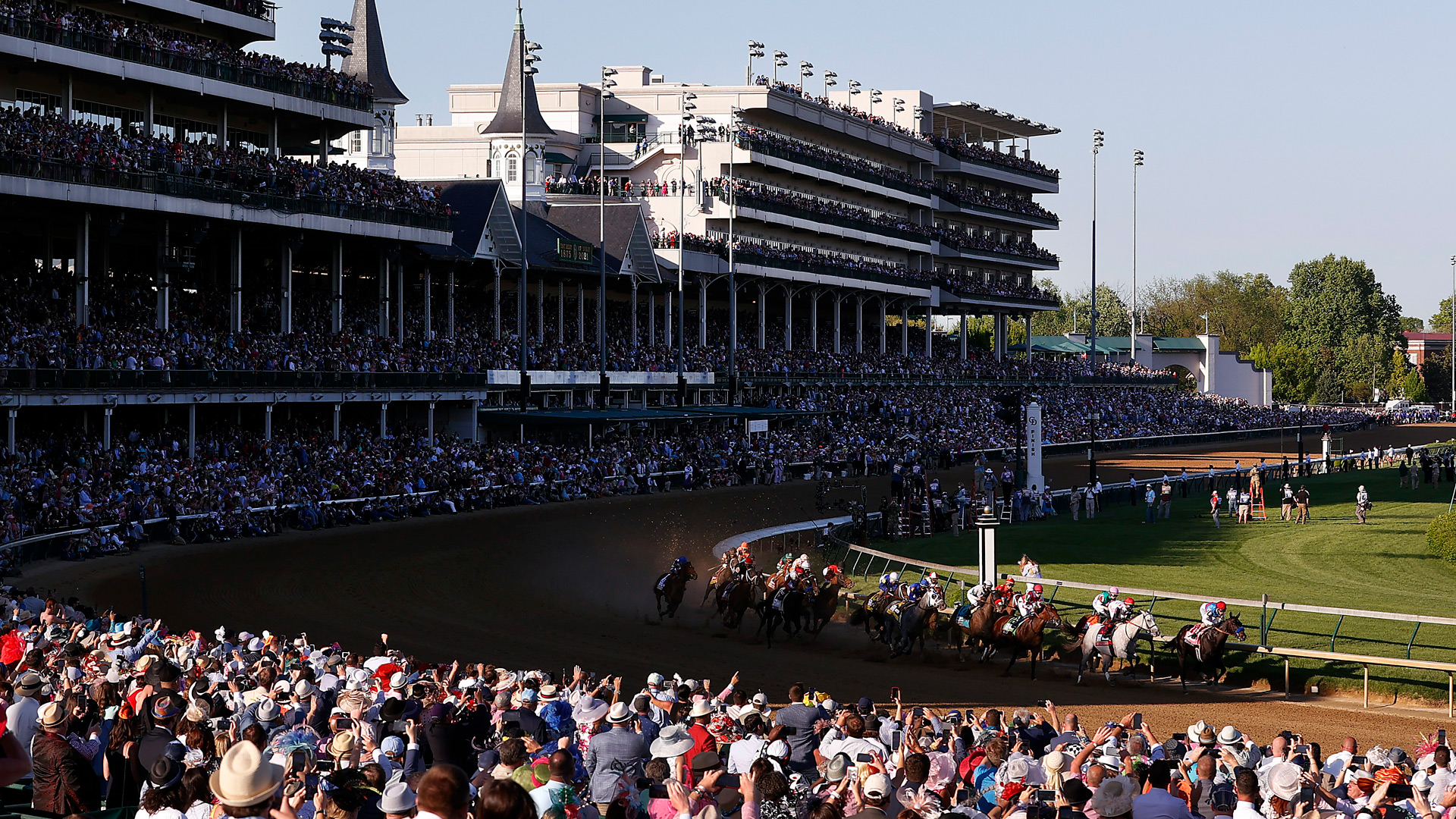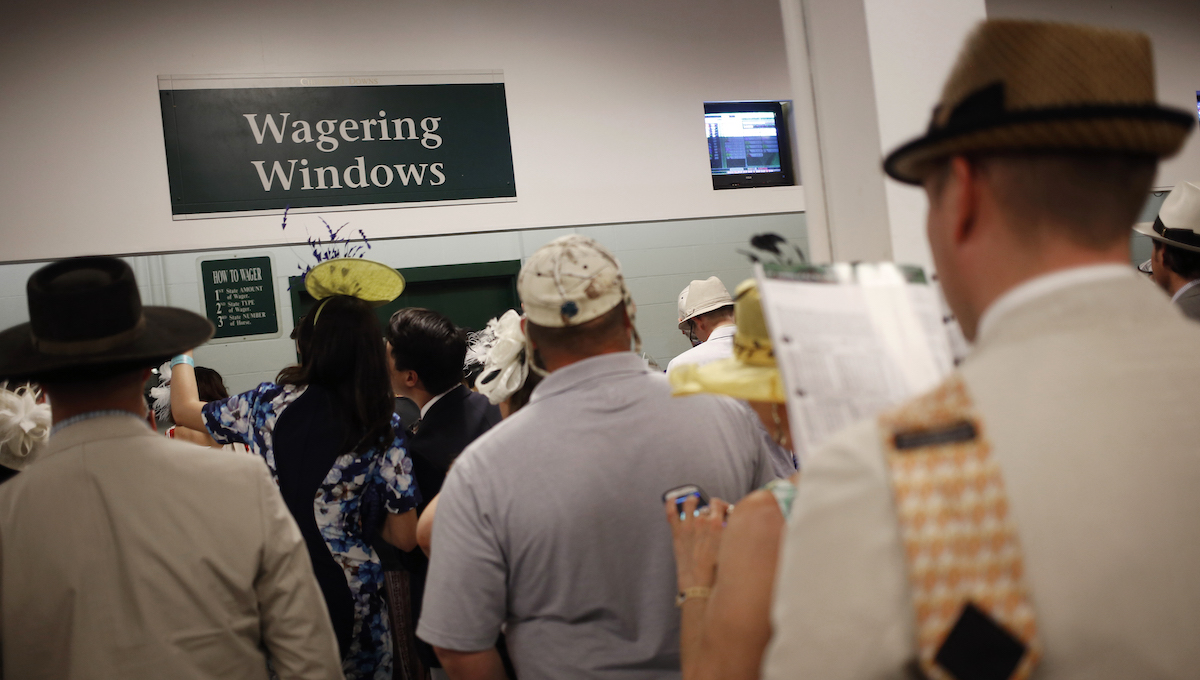Bob Baffert has been the face of American horse racing for nearly 30 years.
His success on the sport’s biggest stages and his shock of white hair make him hugely recognizable, even to the average person who doesn’t follow the sport outside of the Kentucky Derby.
He trained American Pharoah to the first Triple Crown sweep in 37 years in 2015. He repeated the feat with Justify in 2018.
In all, Baffert has won a record-tying six Kentucky Derbies, seven Preaknesses and three Belmonts.
Get Tri-state area news delivered to your inbox.> Sign up for NBC New York's News Headlines newsletter.
But he won’t be at Churchill Downs on Saturday for the 148th Derby and it's not because he doesn’t have any contenders.
More Triple Crown Coverage
Why is Baffert banned from the Derby?
Churchill Downs Inc. barred Baffert from entering horses at any of its tracks for this year and through mid-2023. The punishment resulted from his 2021 Derby winner Medina Spirit failing a post-race drug test and later being disqualified from that victory in a ruling handed down this year.
Medina Spirit tested positive for betamethasone, an anti-inflammatory medication. It’s allowed in Kentucky but must clear a horse’s system at least 14 days before a race. It’s considered a Class C drug, with a lesser potential to influence performance, but any level of detection on race day is a violation.
At the same time, the Kentucky Horse Racing Commission suspended Baffert for 90 days because of medication violations involving the trainer’s horses, including Medina Spirit.
That means he will miss the entire Triple Crown series: the Derby, Preakness on May 21 and Belmont Stakes on June 11.
Baffert failed in multiple attempts in Kentucky to overturn the track’s ban or the start of his suspension, which began April 4.
The 69-year-old Hall of Fame trainer is suing Churchill Downs Inc. in federal court to end his suspension.
Baffert has saddled 34 horses in the Derby — third-most in history — since his first appearance in 1996. Besides his six wins, he’s had three seconds and three thirds.
This year will be just the sixth time he hasn’t had a horse in the race.
What does Baffert say about Medina Spirit's failed test?
The trainer said the positive test could be explained by an ointment used to treat a skin rash on Medina Spirit. He said a veterinarian recommended an antifungal cream that was applied daily. Attorneys for Baffert and Medina Spirit’s owner, Amr Zedan, said urine testing conducted by a New York lab confirmed the colt was positive for the anti-inflammatory not via injection but because of the ointment used.
Kentucky racing officials have said it doesn’t matter how the anti-inflammatory was administered, only that it was present on race day, which isn’t allowed.
The colt died in early December after a workout at Santa Anita. Baffert said it was a heart attack. A necropsy failed to pinpoint the cause.
What does his suspension mean?
The 38 U.S. racing states operate on an informal system of reciprocity, meaning if an owner, trainer or jockey is banned in one state, the others typically will honor that suspension.
Owners, trainers and jockeys must be licensed in each state in which they compete. Those licenses are issued by state racing boards.
Baffert is based in Southern California, where the rules involving suspensions go further.
Any trainer suspended for 60 days or more is banned from any racing board-licensed facilities. Baffert had to remove the signage identifying his barn at Santa Anita and vacate the premises when his suspension began.
Will any former Baffert horses run in the Derby?
Yes. Messier, the early 8-1 third choice, and early 12-1 shot Taiba are the two Kentucky Derby starters who were previously trained by Baffert.
After Baffert’s legal attempts to overturn his ban and suspension failed in late March, some of his horses were transferred to other trainers by their owners.
How did other trainers end up taking over Baffert's horses?
Tim Yakteen, a former assistant under Baffert who has run his own stable for 18 years, is overseeing Kentucky Derby contenders Messier and Taiba.
He has no immediate ties to Baffert and the owners of the horses agreed to the moves. The owners have generally expressed sympathy for Baffert.
Baffert isn’t allowed to contact Yakteen during his suspension.
Once Messier and Taiba were transferred, they ran in qualifying races and earned enough points to gain spots in the 20-horse Derby starting gate.
Has Baffert been in trouble before?
Yes, several times, but this is the most severe punishment he’s received. His filly, Gamine, tested positive for betamethasone after the 2020 Kentucky Oaks. It’s the same substance that Medina Spirit tested positive for after last year’s Kentucky Derby.
In the Gamine case, which Baffert didn’t appeal, Kentucky racing officials fined but didn’t suspend him. The filly was disqualified from a third-place finish and the purse money she earned was forfeited.
In April 2020, Gamine was disqualified after she won a race at Oaklawn Park in Arkansas. That same day, Charlatan was DQ’d from his victory in the Arkansas Derby. Both horses tested positive for lidocaine, a local anesthetic.
Baffert appealed both cases with Arkansas officials, who initially suspended him for 15 days and disqualified both horses. He succeeded in getting the rulings overturned. The horses had their first-place finishes restored and he was fined $5,000 for each positive test.
Arkansas officials said the positive tests did not impact the horses’ performances and that they were the result of inadvertent contamination. Baffert blamed the positive tests on a pain patch worn by an assistant who saddled both horses.
When can Baffert return to racing?
His suspension ends July 2. That gives him time to prepare for the start of the summer meeting at Del Mar, the San Diego-area track that opens July 22.
Last week, a hearing officer recommended a two-year suspension for Baffert in New York for repeated medication violations involving his horses that occurred in other states. The suspension must still be approved by a New York Racing Association panel. If approved, it would go into effect after the end of his 90-day suspension by Kentucky officials.
Baffert plans to contest the ruling that could keep him from entering horses at Saratoga in upstate New York when its summer season begins July 14.
He’ll be back in time to enter horses in November at the Breeders’ Cup, the two richest days in North American racing. The event is at Keeneland, a Kentucky track not owned by Churchill Downs Inc.



